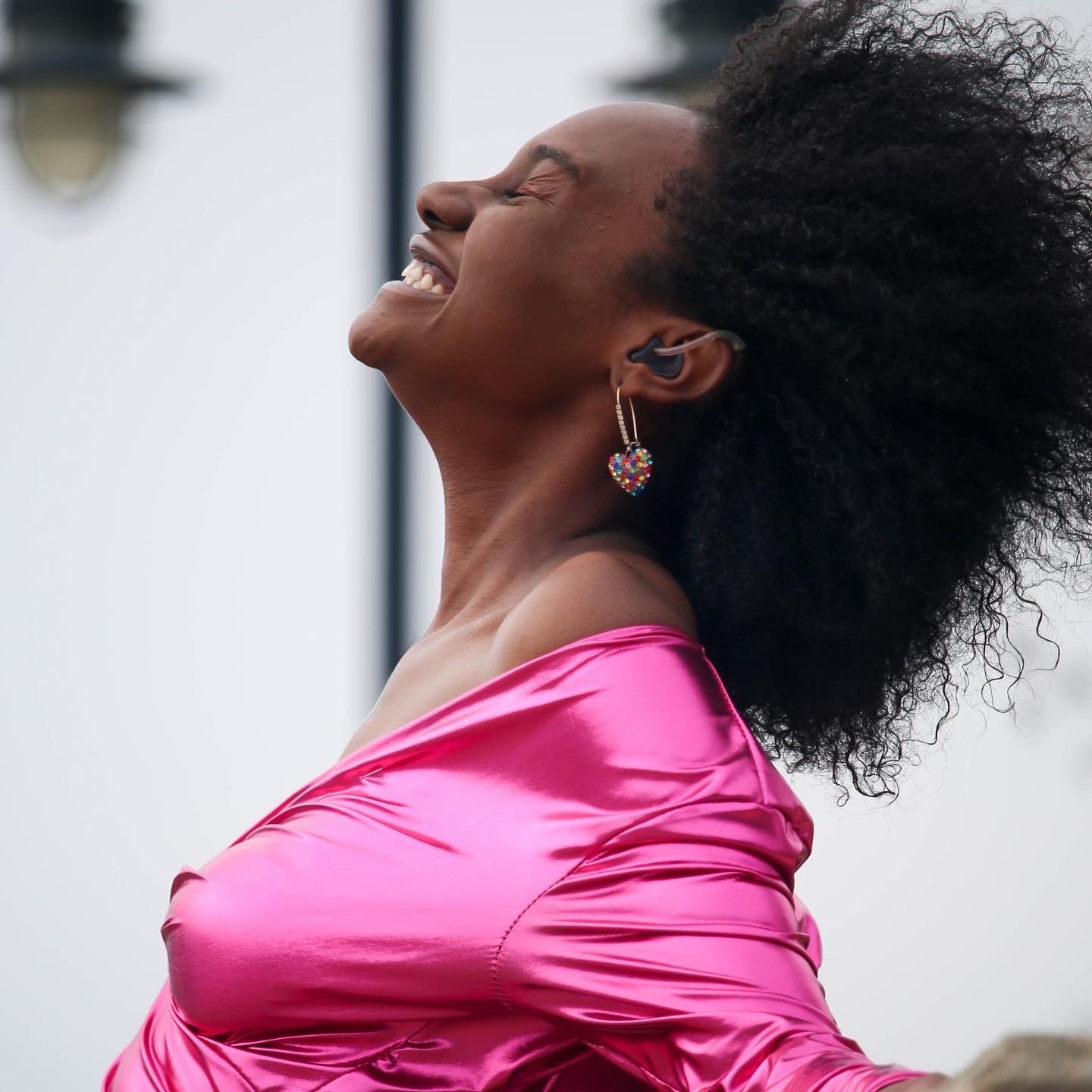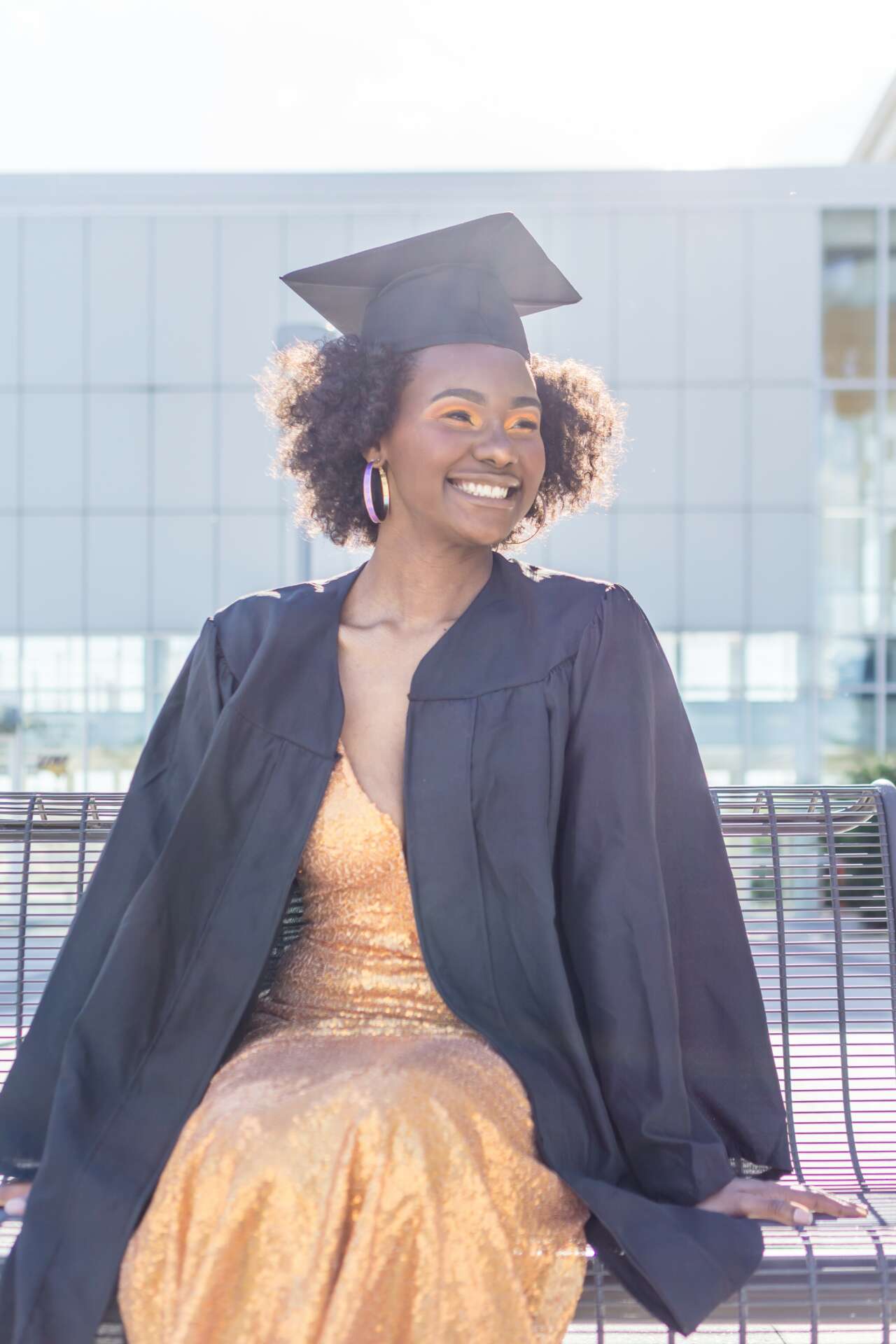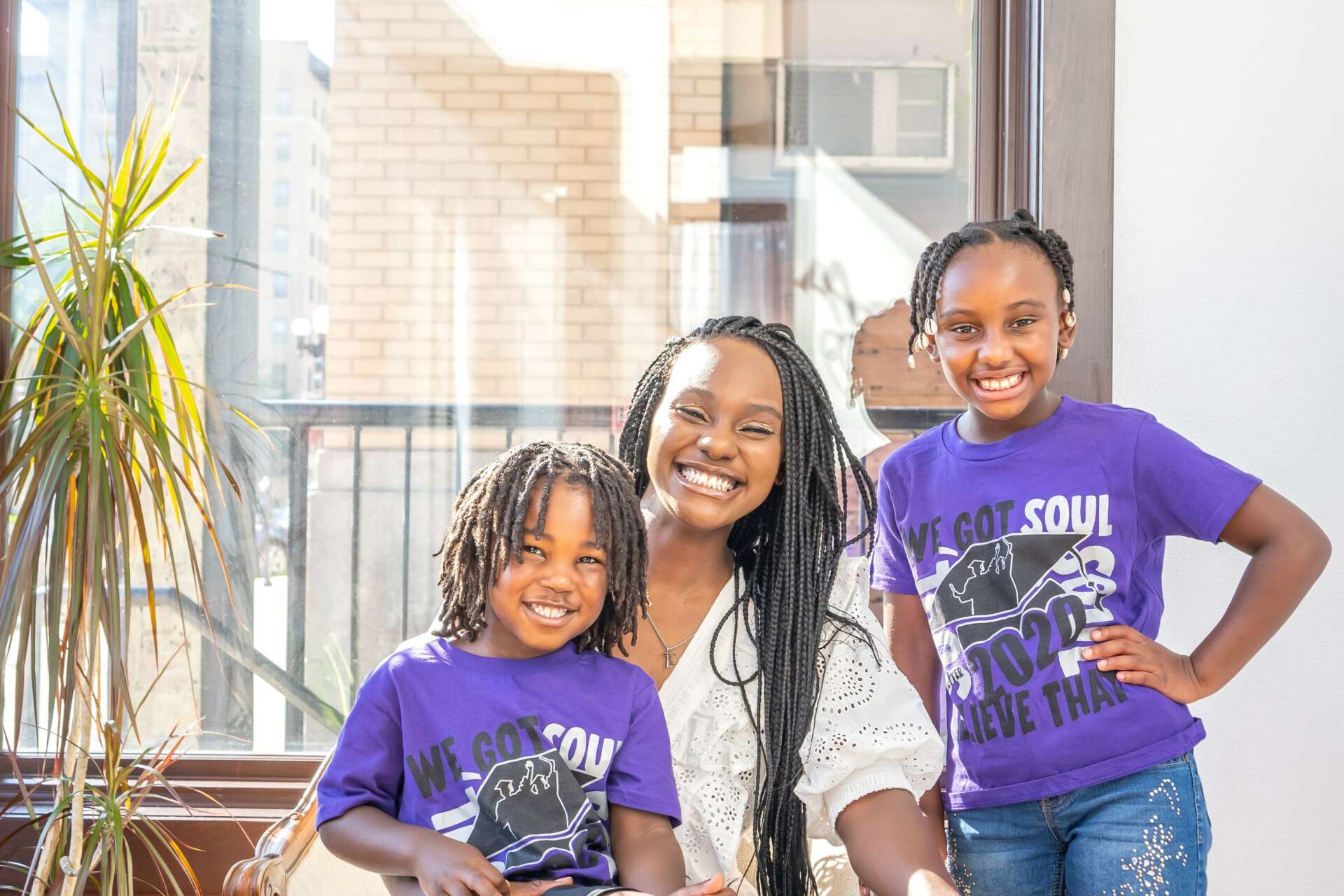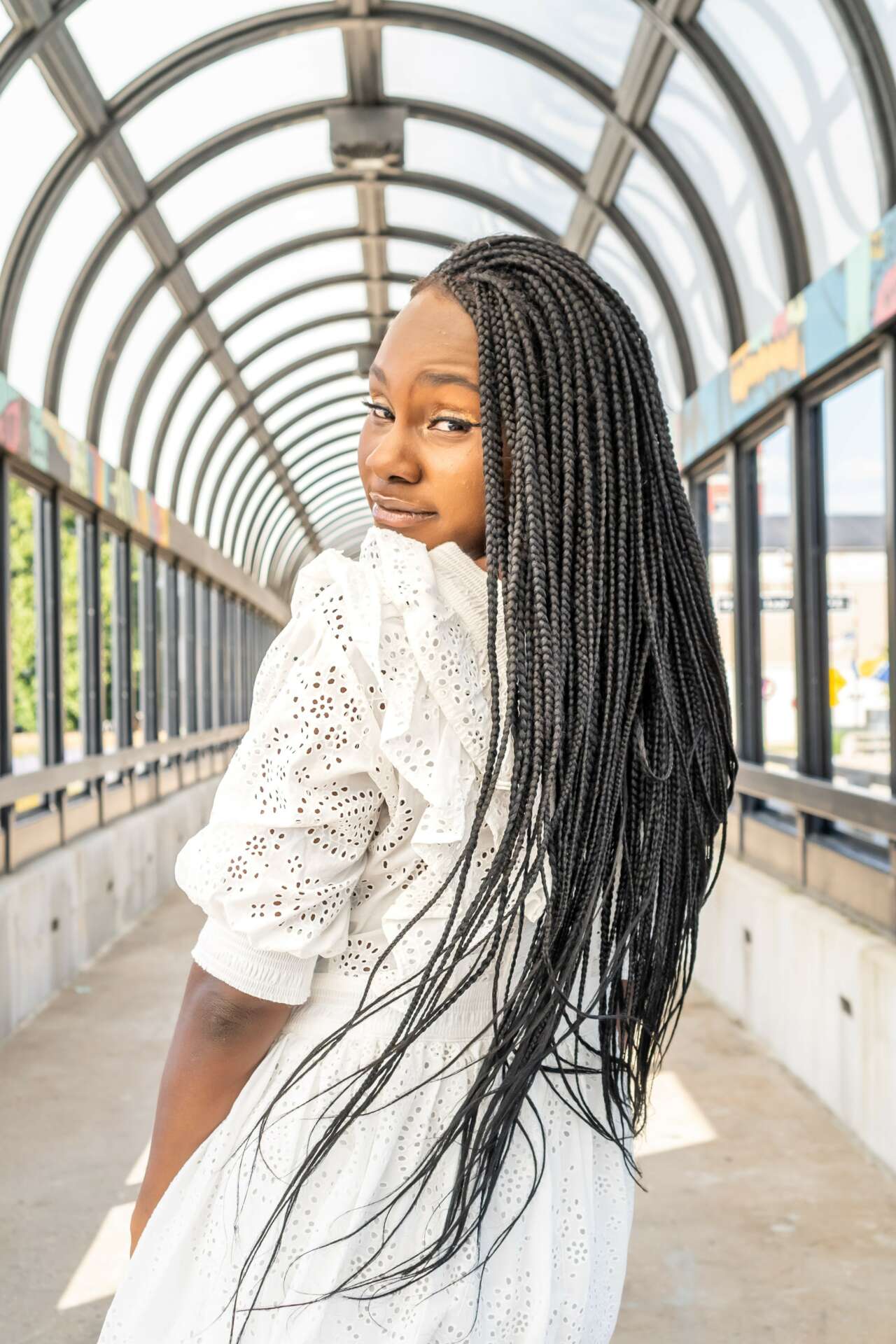We’re excited to introduce you to the always interesting and insightful Kei-Che Randle. We hope you’ll enjoy our conversation with Kei-Che below.
Kei-Che, thanks for joining us, excited to have you contributing your stories and insights. What were some of the most unexpected problems you’ve faced in your career and how did you resolve those issues?
Barriers are definitely a part of the journey for BlackDeaf people. We are told “No” all the time and relentlessly the underdogs.
#BlackDeafStudentsMatter
Any time a Deaf consumer engaged in an activity outside the home, an interpreter should be provided. In 2023, I am still having to self-disclose my Deafness and request an interpreter.
Oftentimes, I am denied an interpreter and occasionally pay out of pocket for these expenses.
Interpreters can be expensive as a team is encouraged for full optimacy. However, they are essential to the growth of Deaf consumers, They ensure information is accurately translated from English to American Sign Language. In addition, it’s important for hearing interpreters to yield the way and uplift the Deaf consumer. I’ve had some experiences where interpreters tend to take over the space. We must uplift Deaf communities first as true allyship. I know this is a sensitive subject and I’m here to discuss it more, specifically within Black communities.
It’s important that hearing communities start to recognize this as a problem. It’s essential that we all display a willingness to resolve these barriers in a positive way.
I also want to acknowledge that you cannot love American Sign Language and signing videos, without loving Deaf people. Once progress is made, the doors will open for our allies to join the movement, alongside Deaf communities.
The problem here is that Black Deaf Students Matter isn’t valued by all.
My efforts are only to shift this culture and bridge the gap between Deaf and hearing communities by bringing Black ASL to the world through music and amplifying BlackDeaf Education.

Great, appreciate you sharing that with us. Before we ask you to share more of your insights, can you take a moment to introduce yourself and how you got to where you are today to our readers.
STEPS is an acronym for Songs To Enhance People Signing, founded by myself, a BlackDeaf woman/mother/Teacher of the Deaf/Doula/Aspiring Midwife. I am the first Black and Deaf alumni from One Million Black Women: Black in Business Initiative and earned the Best Message Award in the Black Joy Parade (Oakland.) Hailing from the Midwest, I graduated from the University of Northern Iowa, majoring in Public Health with an emphasis in Women’s Health. I am is most passionate about bridging the gap between Deaf and hearing communities by equipping all with American Sign Language, from birth throughout their lifespan.
In the Beginning, there was the WORD. I was born with bilateral sensorineural hearing loss. However, I wasn’t diagnosed until she was seven, 2nd grade. My gift as a child was that I mastered the art of lipreading. Through the exchange of nearly a dozen pairs of hearing aids and advocacy, I was able to find pride in being BlackDeaf (as whole, not two parts) as an adult. She was formally introduced to American Sign Language as a senior in high school in Tucson, Arizona. In college, I continued to self-teach myself to sign. It was then when I noticed the beauty of ASL but I didn’t realize what an impact it would make in my life. In 2015, she received a cochlear implant. Within six months, my hearing loss had decreased resulting in total deafness in my right ear, and less than 20% in left. I’ve always been bimodal; wearing two amplification devices. I wear a Resound hearing aid in my left ear and a hybrid cochlear in my right. Knowing that one day I may lose all of her hearing, I aspire to amplify Black Deaf culture and bask in the joy of my silence. I aspire to not have to use my voice at all, as an end goal for my legacy. The process continues to be a spiritual journey, the evolution of the STEPS by Kei-Che.
STEPS Mission: To showcase the evolution and enhancement of people learning American Sign Language through gospel and hip-hop music. We embody rhythm and passion through the creative use of American Sign Language (ASL), music, and dance.
STEPS Vision: To bridge the gap between the Deaf and hearing communities by bringing Black ASL to the world through music enjoyment. We provide education (Deaf Education consultation) to all regarding layers of being marginalized and navigating microaggressions, miscommunication, and stereotypes. We aspire to break barriers by learning, encouraging, rebuilding confidence, and celebrating each other’s languages.
My goal is to INSPIRE people and deepen the roots of having HOPE, JOY, and LOVE.
“I am Deaf. Of course, I want to work with Deaf children. I didn’t have that. I want them to have me and know that I will always be a resource to them and there to support their journeys. I want to equip hearing students with ASL skills and BlackDeaf Education/BlackDeaf Culture. I plan to curate strong relationships within both communities. Through collaboration with other BlackDeaf pioneers and those needing representation, we will shift the culture and NORMALIZE/MAINSTREAM AMERICAN SIGN LANGUAGE among all populations. Not just the language, the culture & the people as well.”

What do you think is the goal or mission that drives your creative journey?
Our movement: #Black Deaf StudentsMatter. It embody our everyday challenges as Black Deaf people striving for success. Our experiences includes delayed access to language (ASL), a lack of access to interpreters in public settings, and minimal representation.
To combat these inequities, I am partnering with other Black Deaf performers and interpreters to showcase our talent, skills, and vibe. Collectively, we plan to launch a lyrical song catalog, that allows all to experience music with signed lyrics.
We are uncovering our identity and standing in our light by pulling back the layers of racism and ableism.
Why is being Deaf normalized as White (culturally)?
There is still consistently delayed access to information and education for BlackDeaf communities. Unfortunately, our counterparts continue to struggle with accepting Black Deaf Education.
How do we shift this culture? What does allyship look like? How do you advocate without “speaking for” Deaf individuals? As a BlackDeaf person, how do you seek advocacy (and accept it) when needed?
How to find your support network? These are all valid questions I’m asked all the time and continue to drive my efforts forward.
I feel passionate about ensuring that BlackDeaf children and all hearing people learn to sign.
My hope is to move the needle in normalizing American Sign Language as a community language, across the globe.

Learning and unlearning are both critical parts of growth – can you share a story of a time when you had to unlearn a lesson?
I had to learn that I define myself. Especially as BlackDeaf women, we must not find validation in the approval of white culture. I’ve learned that I have value. This game-changer has driven me to help others reach this conclusion.
I have several experiences of exclusion. I am grateful that I didn’t allow them to determine my path. I have strong community support and vision. I believe I was called to do this advocacy work and I’m committed for the rest of my life.
Black Deaf Students Matter started with examining my own needs. It advanced when I started working with Black and Brown Deaf children. I realize very few were advocating for them/us.
Zora Neale Hurston says, “If you are silent about your pain, they will kill you and say you enjoyed it.”
This is why, we SIGN.. with our hands, listen with our hearts, and learn through our intentional choices.

Contact Info:
- Website: www.stepsbykeiche.com
- Instagram: https://www.instagram.com/stepsbykeiche/
- Facebook: https://www.facebook.com/STEPSbyKeiChe/
- Linkedin: https://www.linkedin.com/in/kei-che-randle-a1995842/
- Youtube: https://www.youtube.com/channel/UCjwbT4dQhxWHcGeWLPJ7CMA


